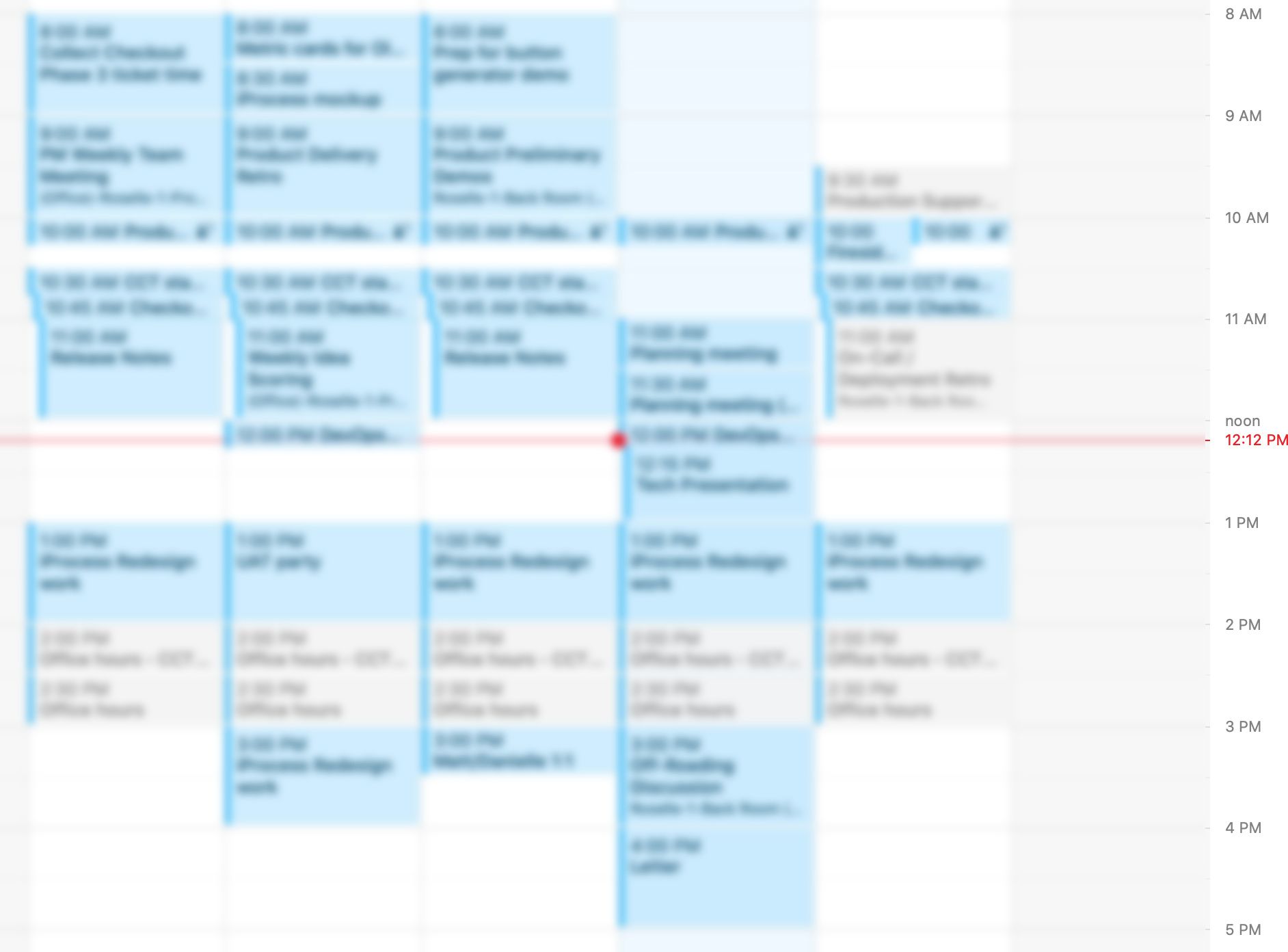How I Use Things 3 To Organize My Life
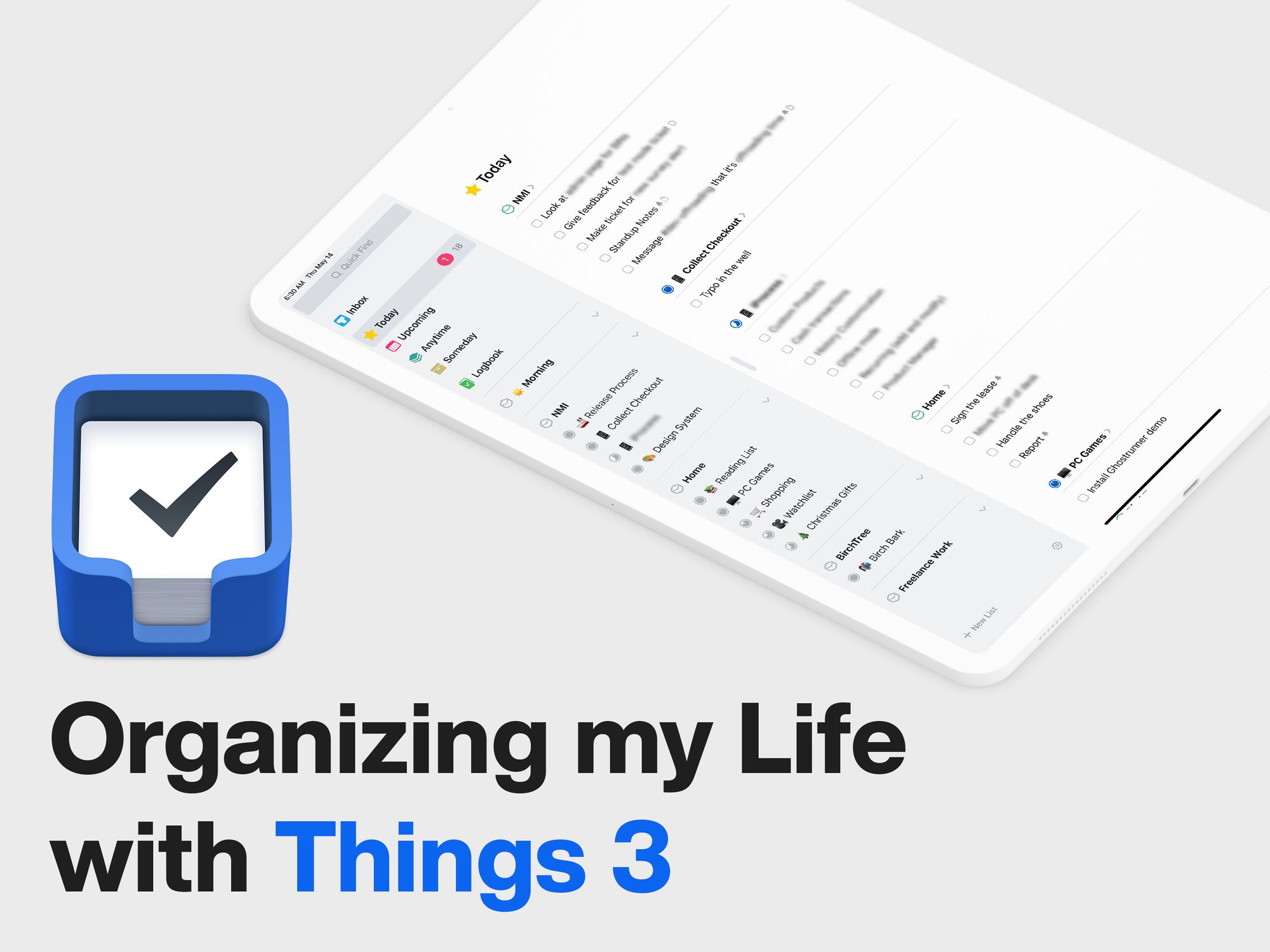
Intro
First things first, I am a strong believe in the idea of “offloading your brain” into a task management system. This means everything I need to do in the future, and I do mean everything, gets logged as a task in my task manager. I find this frees up space in my brain to not think about what I have to do at any given time, I can just refer to my system and do what it says.
Some people like to set higher level tasks and have like 2-3 todo items per day, and that’s a valid system too, but it doesn’t work for me. I typically have 15-30 tasks to complete each work day. For reasons I’ll get to soon, Things has some features that make this very easy to manage.
The Inbox

The inbox always baffled me, but last year I finally read David Allen’s Getting Things Done and it clicked for me. I add things to the inbox when they come up and then I have a recurring task set up to triage my inbox every day. Sometimes I’ll often triage throughout the day, but there is a repeating task at 7:30am each day to make sure that everything is out of my inbox and somewhere else.
I also value being able to add to the inbox easily. Since I add so much, it needs to be simple and quick.
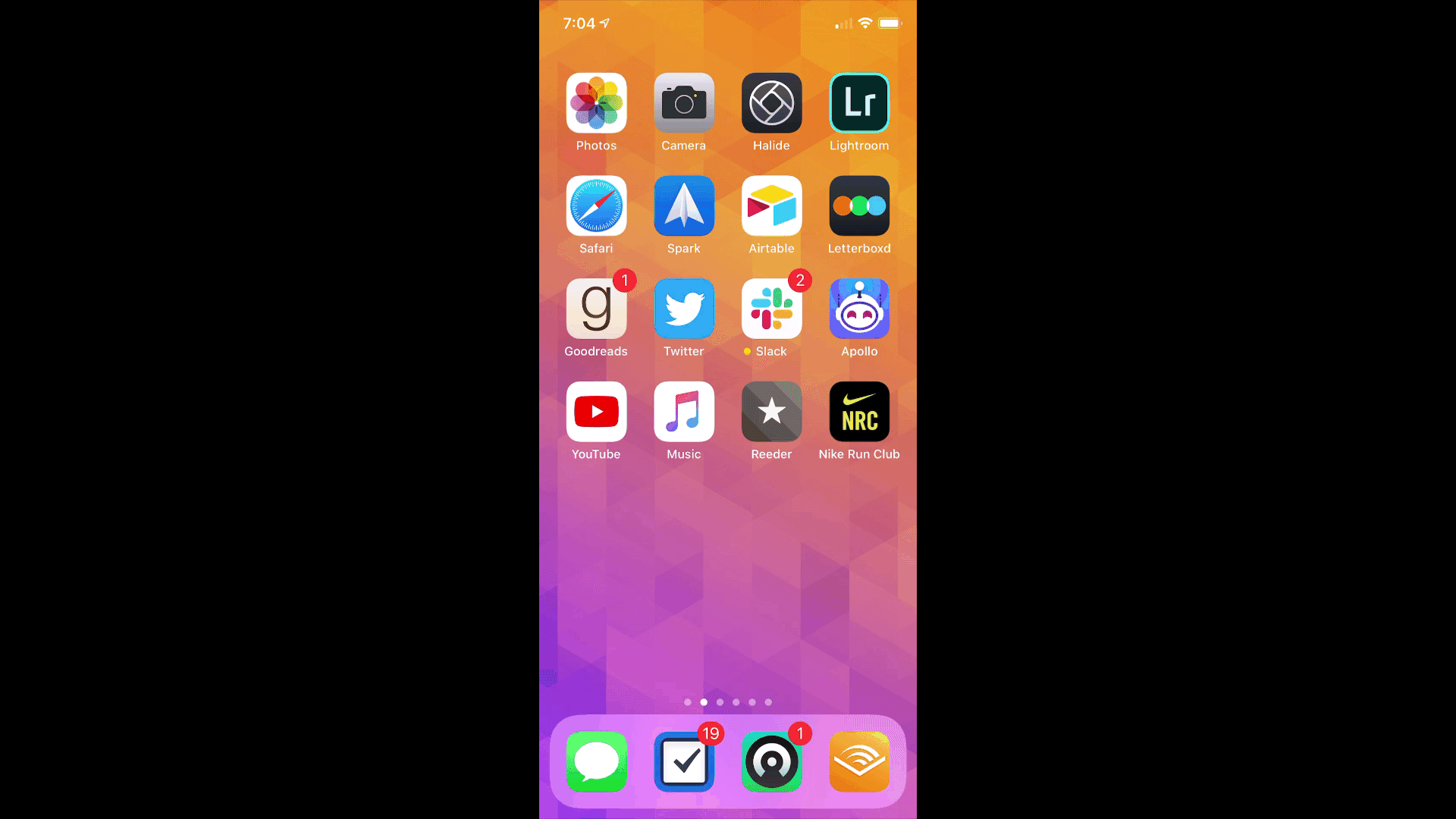
It’s very quick on the iPhone and iPad, and the Mac’s Ctrl+Space shortcut is hugely useful. The Mac app even has another command (Ctrl+Opt+Space) that does the same thing, but pulls in the website you’re currently looking at in your browser, which is really nice for saving tasks with linked web pages.
After the Inbox (Areas and Projects)
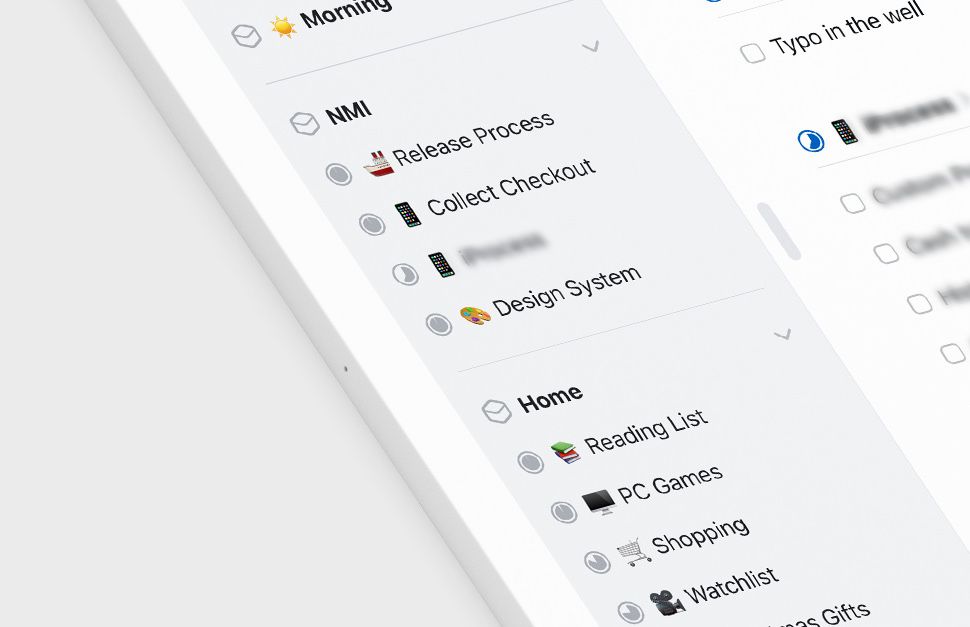
After a task is put in the inbox, it needs a few things to escape. First of which is an “area” (I think OmniFocus calls these “Contexts” but they’re the same thing). An “area” is where a task falls in my life. I have 5 set up now:
- Morning (things I need to do before the rest of the day)
- Home (things around the house or just things I need to do for me/family/friends)
- Work (all the stuff I do for my employer)
- BirchTree (blog post ideas, podcast schedules, YouTube posting steps, etc.)
- Freelance (any work I’m doing on the side)
Every single thing I want to do falls into one of those areas, and if I ever make a task that needs something else, then I’ll simply make a new area.
Projects are sub-categories of areas. So for example, “Release Notes” is a project under my Work area, “Shopping List” is a project under my Home area, and “Birch Bark” is a project under my BirchTree area. These can either be finite projects that will come and go, or they can be ongoing things that will never end.
All tasks get assigned an area, but not all tasks get assigned a specific project. For example, I have a task on my list today to clean up the shoes by our back door. I could theoretically have a project for “Chores” or something, but I just assign it to the Home area and consider that good enough.
Oh, and as a rule I give all projects an emoji to help pick them out of a list quicker. You don't have to do this, but it helps me a ton.
Due Dates
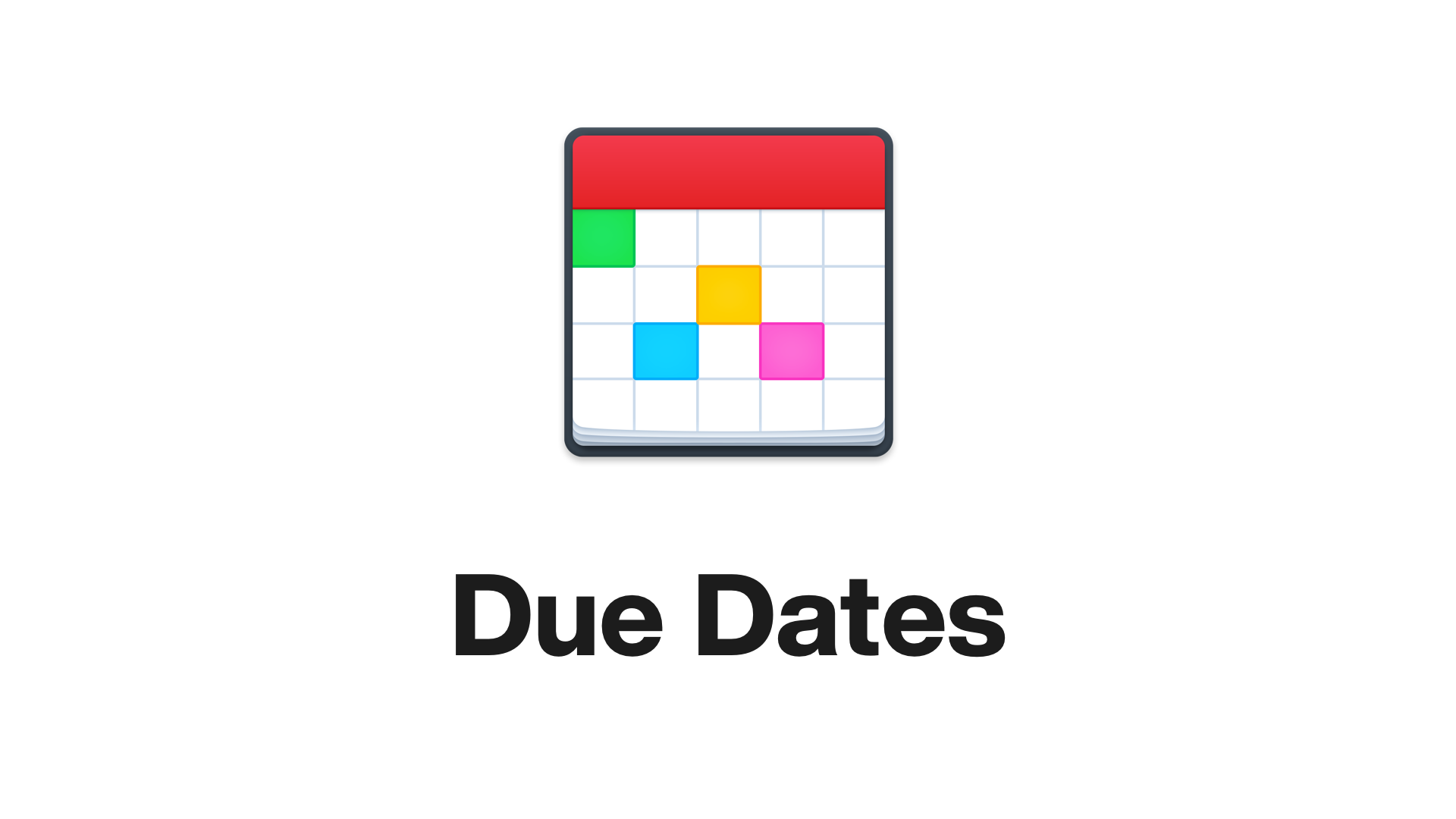
I assign due dates to almost everything. I tend to live my day-to-day in the “Today” view of the app, which predictably shows me what I have to do today. Due dates mean that I see what I need to do on specific days whenever that date hits (duh).
One thing I really like about Things over OmniFocus, which I used before this, is that I can assign tasks a due date without a time associated with it. I have a task today for work called “Give feedback for test mode ticket” which I need to do today, but it doesn’t really matter if I do it at 8am or 9pm. The dev is going to work on the changes tomorrow, so as long as it’s today, then I’m all good. An alert that goes off at a random time today is not useful here.
Of course there are also tasks I do that are time-sensitive, and those get timed alerts. I have a task where I keep my daily standup notes and that alerts me at 10am each day, right when the standup starts.
And then there are things without dates. These tend to be lower priority things that I want to do someday, but there’s no rush right now to get them done. For example, I have a task to replace the spare tire in my car. This is not something I need to do right now, but I don’t want to forget about it, so it lives in my “Home” area and I’ll set a date for it down the road (more on this in the “weekly review” section below).
Weekly Review
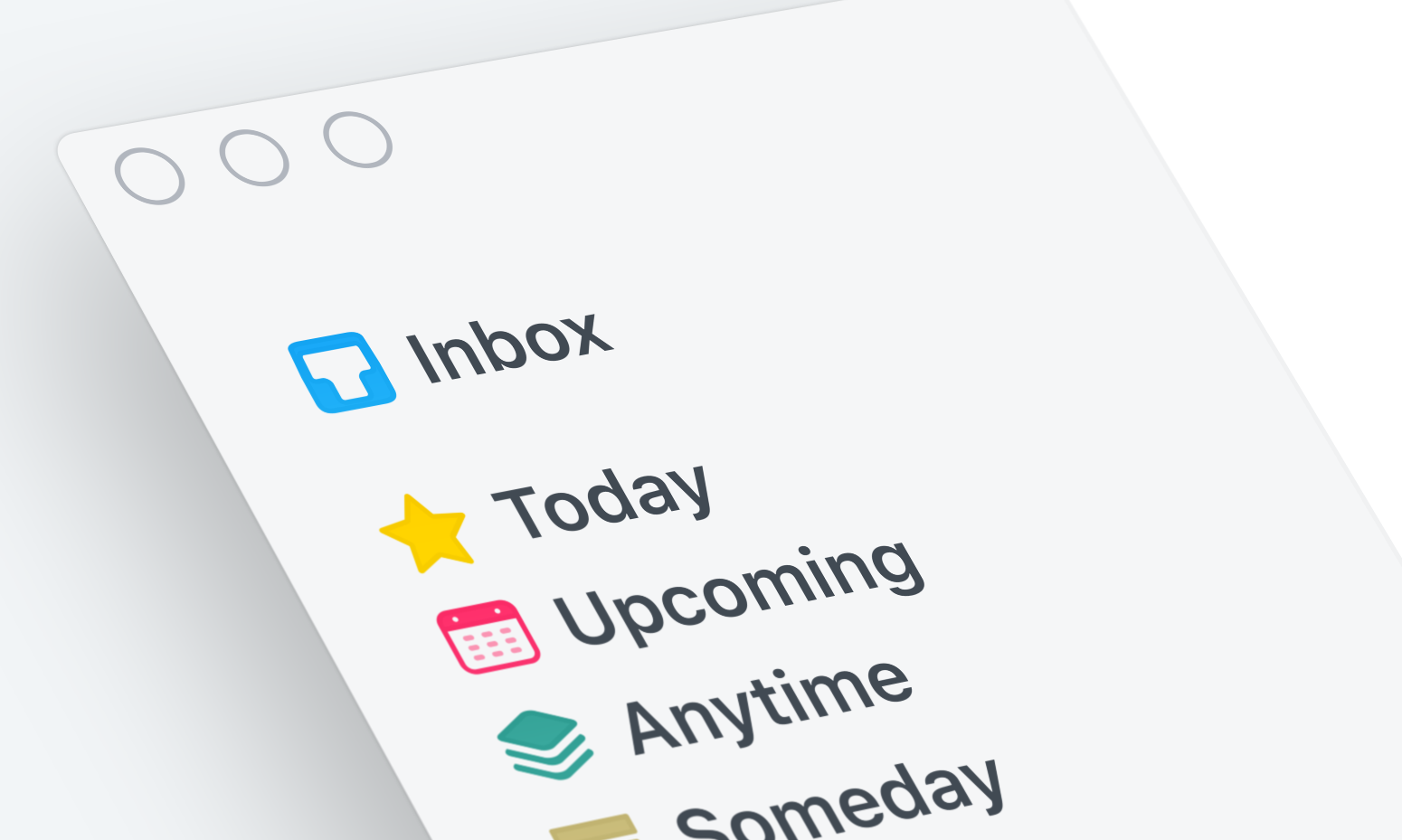
I used to balk at this idea of a weekly review. “I don’t have time for that!” I would think. But I’ve figure out a way to do it that is quick (less than 5 minutes most times) that helps me make sure I understand what I’ve done, what I have coming up, and if there’s anything I’ve missed.
This is of course a recurring task at 3pm on Fridays, right before I pack it up for the weekend.
- First, I go through the “Logbook” section of Things, which is a log of all the tasks I’ve marked complete. I don’t get much out of this 15 second activity other than satisfaction at seeing how much I was able to accomplish this week. Sometimes it’s a quick dopamine hit to see a few important tasks marked as done.
- Second, I look at what I have upcoming in the “Upcoming” tab. This shows what I have next week, and this lets me get some info in the back of my mind so I’m not surprised at something when I come in next week.
- Third, I click through each area and project and see if there are tasks that do not have due dates that really could use a due date. I set those and move on.
- Finally, take a second and look at my projects and brainstorm anything I haven’t logged yet that needs to get done. If I need to send an email on Monday, I make a task. If I’m all good, then I wrap up.
Again, this whole process takes a couple minutes most weeks. It's just meant to be another task that takes a lot of time, it's just something to take stock quickly on what I've done and what's next.
Recurring Tasks
Things gets a lot of grief for how it does recurring tasks, but it's method works for me. The recurring logic is pretty powerful, and I have some tasks repeating every weekday, every week, and every month.

One thing I really like is that I can have notes automatically added to recurring tasks, like my daily standup task:

This appears everyday for me, and everyday I enter a list of things I want to talk about at the standup, and when I mark it complete, that note stays forever in the logbook, but tomorrow's task still only has the "1. " to start the new list. Notes edited on the day a task is due are only applied to that version of the task, and changes made to the recurring task before it's due are saved for all occurances afterwards. Not sure I'm explaining this well, but it works great for me, and is unlike how I've seen other apps handle notes of recurring tasks.
Organization
Here's my view of work tasks today:
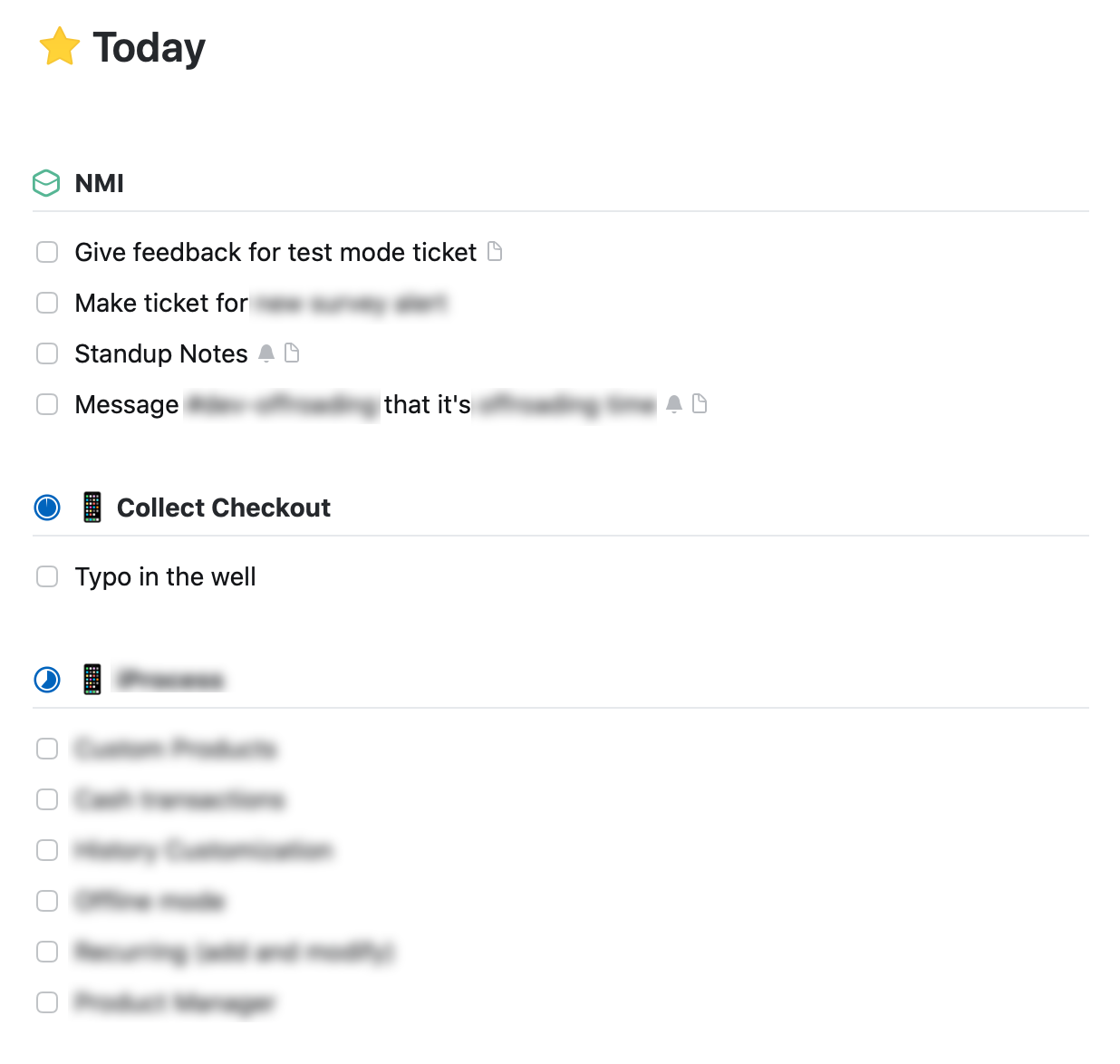
I've masked a good portion of it, but you can still see the structure. Basically, I have 4 general work tasks, one task for Collect Checkout, and a bunch of them for something else. I like having my projects clearly organized, and since many of these tasks don't have specific times they're due, I'm able to sort them however I want.
I also like that Things organizes tasks into their respective projects/areas. This helps me keep my work stuff and home stuff separate (although OmniFocus has more power here).
Forecast
To see what's next, Things has an "Upcoming" page where you can see every task from tomorrow until the end of time. I don't use this a ton, but I do like being able to see what I have coming up on Monday before I sign off for the weekend.
Shortcuts
Finally, I use Shortcuts to automatically add a bunch of tasks at once when certain things need to be done. For example, 2 weeks a month, I am responsible for collecting and posting release notes for my company's products. It's not 100% consistent though, and setting recurring tasks would only lead to a mess. Also, I have a bunch of little things that I need to do. They're the same every time, but I can't miss any of them lest the whole thing fall apart (yes, this should be better automated, but it's not yet).
I have a couple shortcuts that have actions to add about 5-6 taasks to the following Monday or Wednesday. Things, like most other task managers out there, has good Shortcuts support that lets me create these tasks, assign them to the right areas/projects, and give them due dates without me needing to do anything besides tap the button.

Takeaway
I don't think my system is the One True Way to Get Stuff Done. in fact, you may think I'm a crazy person after getting this far. I'll say three things in my defense:
- This is what works for me. I've never been more productive than I've been in the past year since adopting a lot of the behaviors described above. I manage a design job, this site, a podcast, a newsletter, a YouTube channel, a social life, and freelance work, often fielding questions like "how do you do all this?" Well, the last 1,700 words should give you an idea how I keep things straight most of the time.
- I've tried a ton of other systems and apps and nothing else has worked as well for me. Name the app and I've tried it, I've paid for it's premium subscription, and I've come back to Things. A few other apps could do it (OmniFocus is clearly my #2 option, with Todoist a distant, but doable third).
- This is my work calendar this week. To say that I task switch a lot is a massive understatement, and I really need a way to keep everything, including the really small stuff, straight. My head is shifting from thing to thing too much to "just remember" everything.
